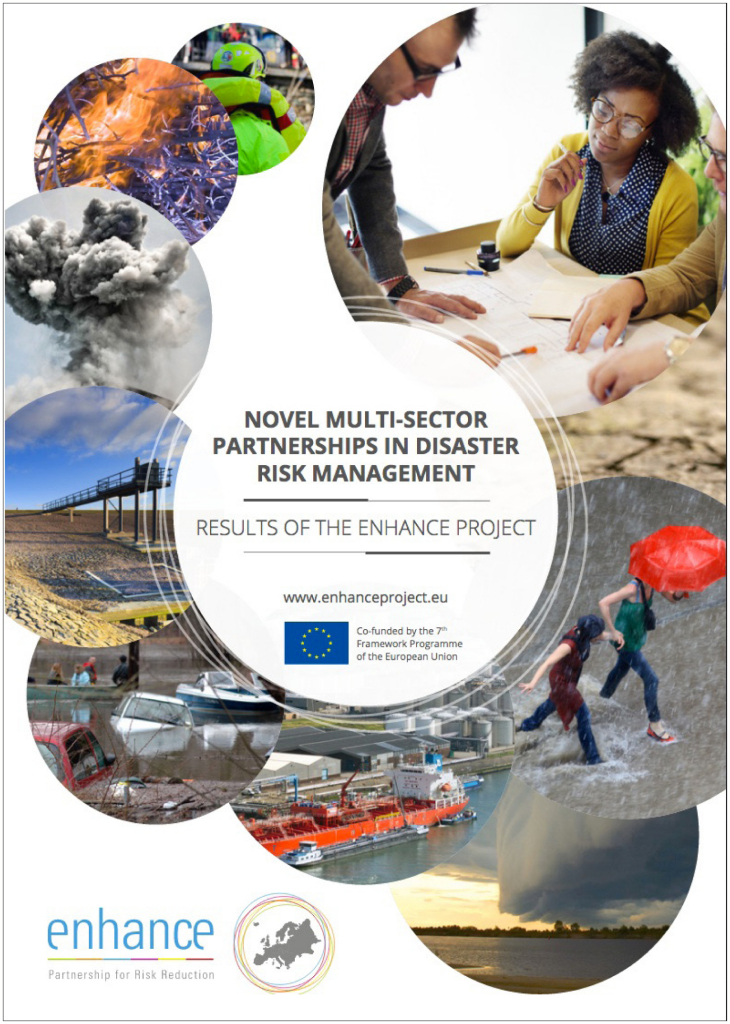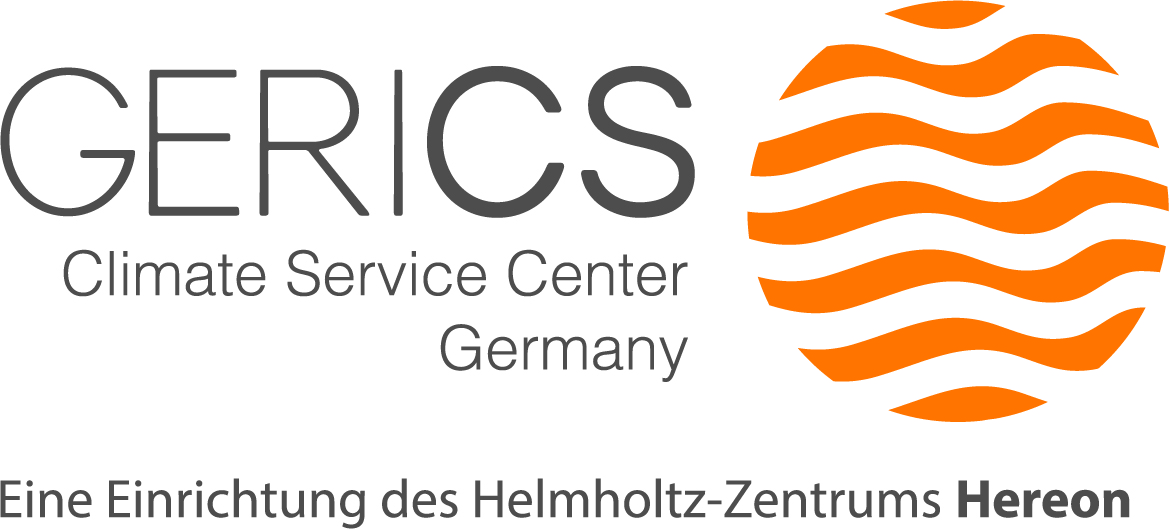Abschlussbericht des EU-Projekts ENHANCE als Buch erschienen
Das EU-Projekt ENHANCE (Enhancing risk management partnerships for catastrophic natural disasters in Europe) wurde nach vierjähriger Projektlaufzeit abgeschlossen. Die Ergebnisse wurden jetzt in dem Buch "Novel Multi-Sector Partnerships in Disaster Risk Management – Results of the ENHANCE project" zusammengefasst.
Die Pressemitteilung im Wortlaut (auf englisch):
Multi-sector partnerships key in disaster risk reduction, says EU project

Brussels 14 November 2016
As natural catastrophes, such as floods heatwaves or wildfires are expected to become more frequent and intense in the future mitigating their impacts through working partnerships and the dissemination of risk information is vital. This is the message highlighted by an EU-funded research project ENHANCE in a newly published book ‘Novel Multi-Sector Partnerships in Disaster Risk Management – Results of the ENHANCE project’.
The book presents the final outcomes of the 4-year project, the core objective of which was to develop novel ways to enhance society’s resilience to natural disasters by focusing on 10 case studies which span the European continent and address a diverse range of risks and hazards. ENHANCE was carried out by 24 partners including academic institutes governmental sector private companies and international organisations from 11 European countries.
Managing risk through partnerships
The tendency of different institutions and sectors to work in isolation from each other has meant that substantial opportunities for information exchange and innovative solutions in preparing and responding to disasters are being missed. By putting Multi-Sector Partnerships (MSPs) at its core, ENHANCE has sought to tackle this issue. Ten MSPs between public private and civil society actors were established or developed in different contexts and situations with an emphasis on the financial sector.
‘Governments can’t do everything by themselves and the private sector has an interest in risk reduction,’ says Ralph Lasage, ENHANCE project manager. ‘They can play an important role when it comes to economically efficient measures to reduce risk. For example if insurance companies provide good risk information they can encourage people in a given area to take certain risk reduction measures and in turn reduce their premium. In that sense reliable access to quality information can stimulate a positive response that makes economic sense for all stakeholders.’
Multiple success stories
The ENHANCE project has delivered concrete scientific and political results at the EU, national and local levels with outcomes ranging from promotion of knowledge sharing to policy recommendations.
Among other successes, the Wadden Sea Forum in Germany has plans to include the impact of climate change as part of their MSP’s work. As well as this the Rotterdam Port Authority in the Netherlands together with the Municipality of Rotterdam and the Ministry of Infrastructure and the Environment has committed about €200 000 for further analysis of the risk that climate change poses to the harbour which is the largest in Europe in order to increase awareness and stakeholder communication and to develop an adaptation strategy.
Beyond local and national levels, ENHANCE has contributed to a number of new European and international policy frameworks among them the UN Sendai Framework for Disaster Risk Reduction, which is a 15-year voluntary non-binding agreement which recognises that while the State has the primary role to reduce disaster risk the responsibility should be shared with other stakeholders.
‘In fact, all case studies provide good examples of how the project has developed and shared knowledge with stakeholders – valuable intelligence they now need to act upon’, says Ralph Lasage.
Weitere Informationen zum Projekt ENHANCE
